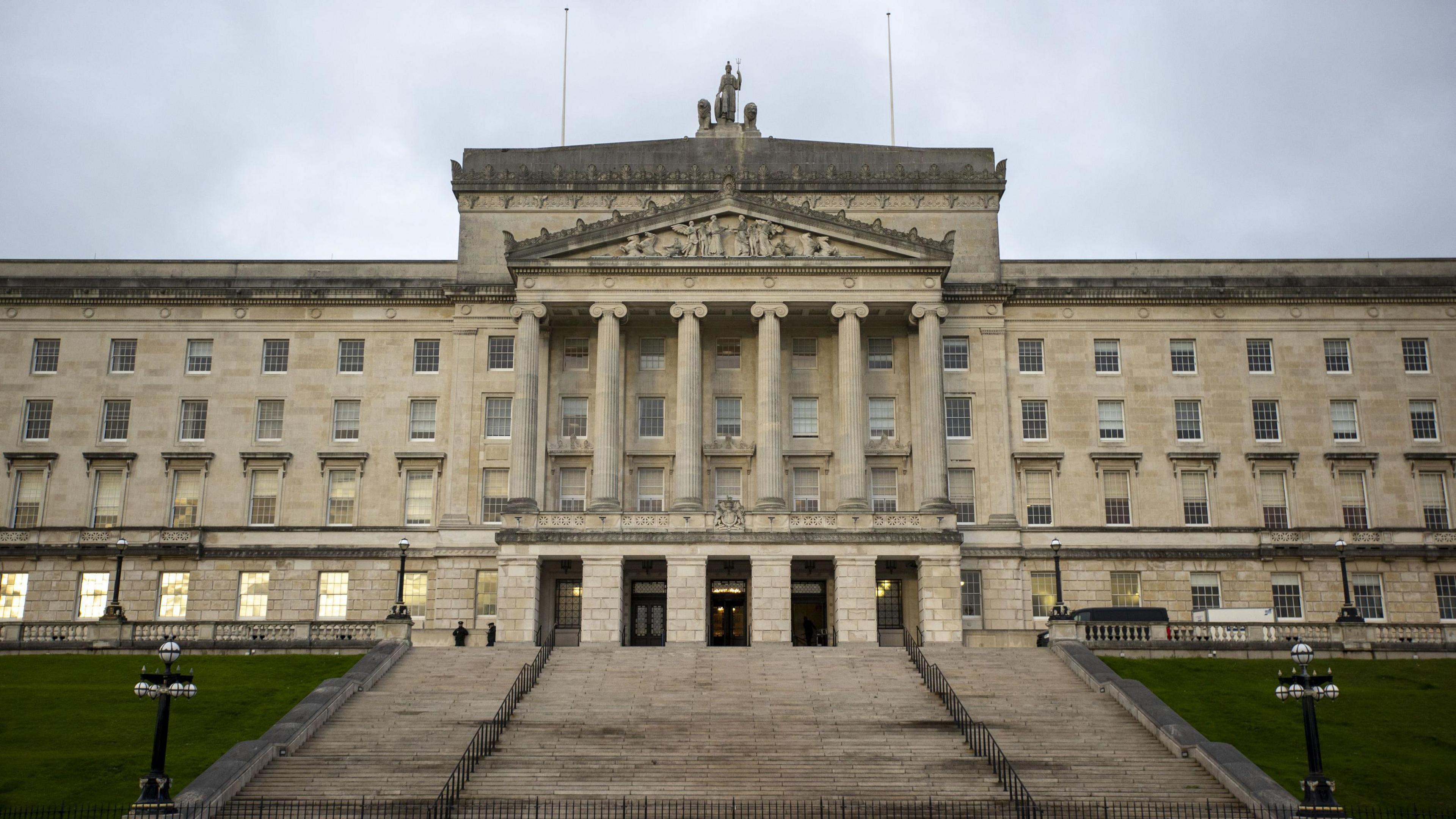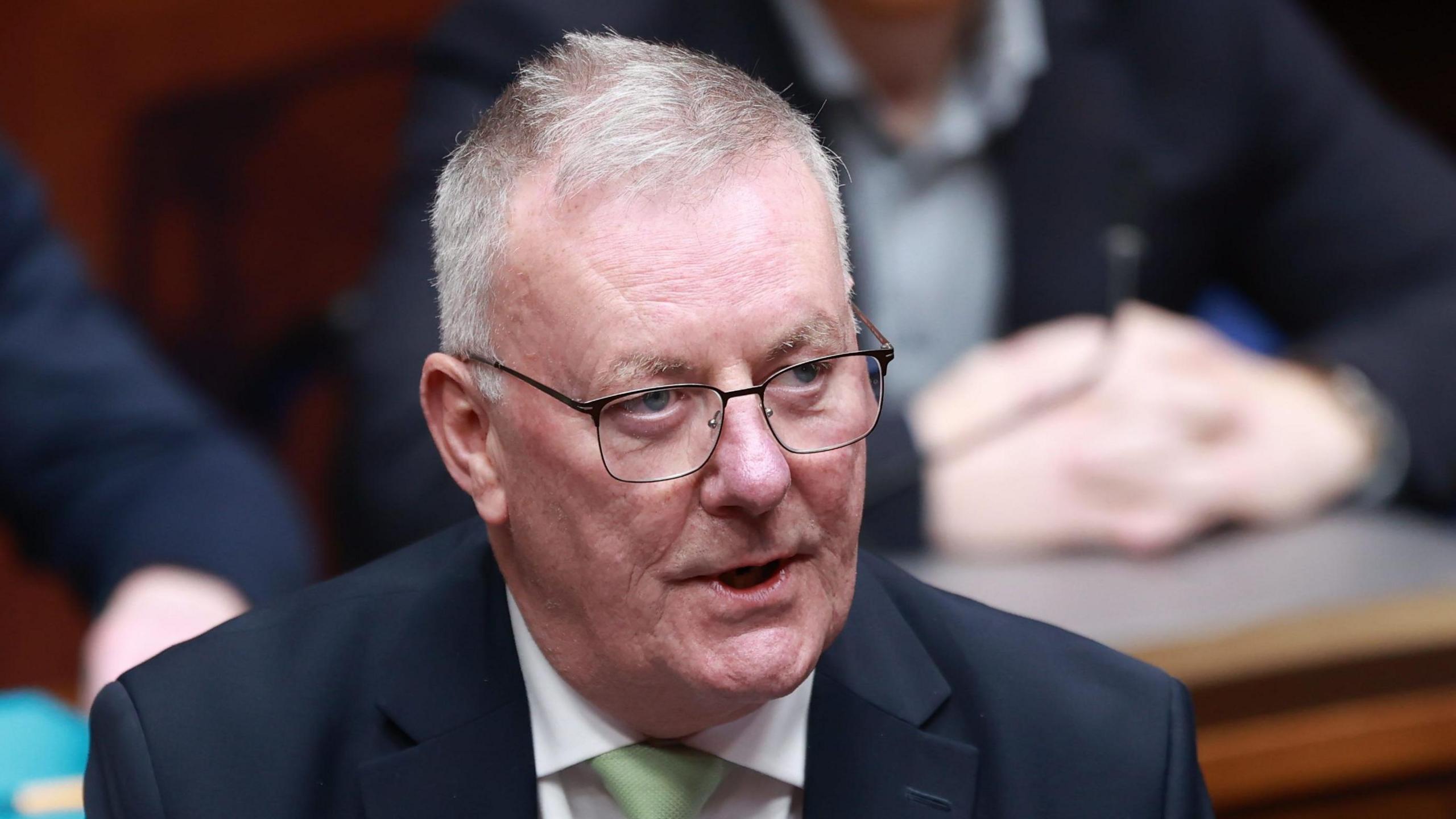What's the shape of Stormont's finances?

Stormont overspent by £100m earlier this week to meet healthcare pay demands
- Published
Stormont ministers have spent most of this year trying to balance their budgets in what they say are challenging financial circumstances.
On Thursday, the executive agreed to allow Health Minister Mike Nesbitt to overspend his budget by £100m to ensure pay parity for health workers in Northern Ireland.
It is an unusual step but one the executive said was taken to stave off potential strike action this winter, and ensure health workers are "appropriately awarded".
The decision leaves questions about the shape of Stormont's finances ahead of the Autumn Budget that will be delivered later this month.
A bleak midwinter?
From what Chancellor Rachel Reeves has already hinted at around tax hikes, her Budget is likely to make bleak reading.
It will also spell out how much Northern Ireland is getting from the Treasury in its "block grant", which is the main source of funding Stormont receives.
In anticipation of what might be coming, last month Stormont's Finance Minister John O'Dowd warned his executive colleagues in a briefing paper that they cannot rule out the potential for cuts.
It is equally possible that Stormont could be in line for Barnett consequentials - additional spending flowing from an increase in public spending in England - but the finance minister said he believes these will be relatively modest.
What could that mean for Stormont budgets?
We likely won't know the true impact until after a monitoring round is carried out by Stormont next month.
They are exercises involving the reallocation of unspent funds within departments and are usually held three times a year - January, June and October.
But the finance minister has instead decided to replace this year's October and January reviews with a single one in December, in order to have certainty on any extra funding that might flow from the Budget.
The Department of Finance had previously estimated that day-to-day departmental "overcommitments" for this year were sitting at about £780m.
Officials within various departments have been working to claw back unspent money to reduce this figure, but there remain some key pressures.

Finance Minister John O'Dowd warned that the Treasury would not look favourably on further overspends by other departments
What are some of those pressures?
While the executive has managed to solve the pay issue for healthcare workers this year - albeit by approving an overspend - other pay-related pressures are outstanding.
Teachers are due to be offered a pay award for 2025/26. The Education Minister Paul Givan has been given £37m to help with this cost but no offer has been made yet to unions.
Police Service of Northern Ireland staff who are due a pay award also have yet to be made an offer, but Justice Minister Naomi Long has said she believes this will happen before the end of the year.
Her department has received £6.7m from the executive for this, with the minister committing to find the other half.
Her department is also faced with a large bill of £119m to cover the cost of compensating police officers affected by a major data breach two years ago.
Last month, the Treasury rejected a request from O'Dowd for help with the cost, which said the executive should have set aside funding to deal with it.
The trade union Nipsa (Northern Ireland Public Service Alliance) has said it now plans to ballot for strike action because of the delay.
Could other departments overspend to meet their demands?
That is an outcome the Department of Finance has made clear it wants to avoid.
In his briefing paper to ministers last month, O'Dowd warned that the Treasury would not look favourably on such a scenario if any department is in the red after the conclusion of the December monitoring round.
He talked about concern of "reputational damage" and said departments need to identify and budget for pay pressures at the start of the financial year.
Andrew McCormick, a former top civil servant in the Department of Finance, said the decision to allow health to overspend its budget demonstrated how "seriously the executive has failed to make realistic plans earlier in the cycle".
"The issues are genuinely difficult, but they have been known and understood for many years, and there is no credibility in the argument that Northern Ireland has been underfunded," he said.
The government also disputes the suggestion from Stormont politicians that Northern Ireland remains funded below its level of need, with Secretary of State Hilary Benn saying just this week that the executive could opt to raise more revenue if it wants to address funding pressures.
However, revenue raising remains an option no party in the executive appears willing to contemplate just yet, despite the difficulties they face.
Related topics
- Published2 days ago

- Published3 days ago

- Published1 day ago
